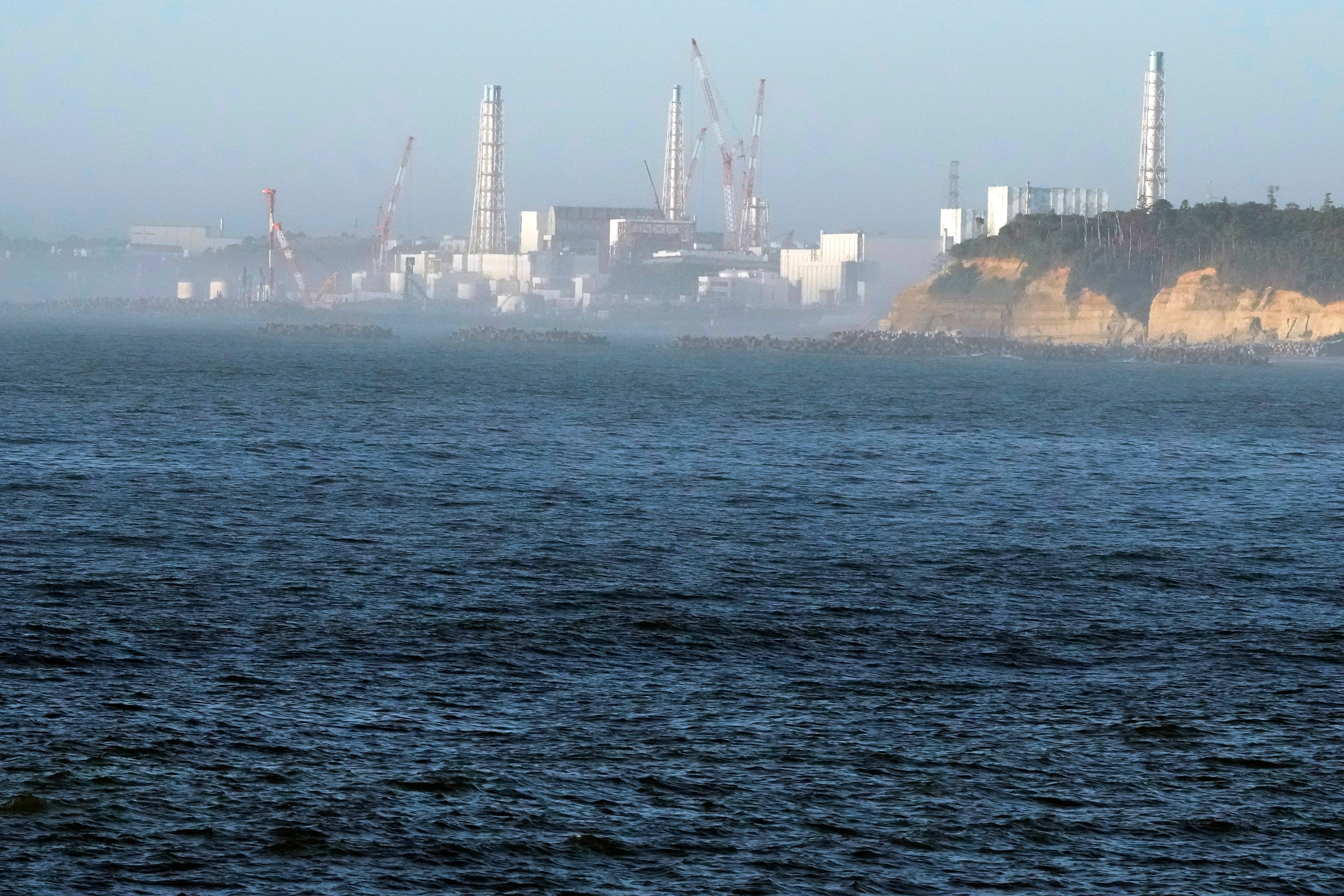What Japan and China’s Fukushima row is really about
Sushi and cheap cod aren’t the only things at stake in the conflict, writes Michael Sheridan. Tensions between Japan and China over the fallout of Fukushima are in danger of reaching critical mass


It turns out that almost anything is radioactive when it comes to the fissile politics of northeast Asia.
This week gourmets across the region faced “seafood wars” after China banned imports of aquatic products from Japan in response to its decision to discharge treated water from the ruined Fukushima nuclear plant into the sea.
The water has been held in tanks since an earthquake and a tsunami led to a reactor meltdown at the plant in 2011. Japan says it has been decontaminated and is safe. China says Japan is “passing an open wound on to the future generations” and has “turned itself into a saboteur of the ecological system.”
None of this is about safety or public health. Instead, it’s about toxic nationalism. And while there are ludicrous aspects to the propaganda, it is deadly serious. When the foreign secretary, James Cleverly, goes to China next week, he will add regional peace and security to the long list of concerns he must navigate in Beijing.
First, the facts. The International Atomic Energy Agency says the planned discharge meets global safety standards and will have “a negligible radiological impact on people and the environment”. About three swimming pools’ worth will flow over the next 17 days and the whole process of releasing 1.34 million metric tonnes will take 30 years.
Nonetheless, China cited “outrage” among its tightly controlled public and quoted an old proverb (there’s always one handy) to the effect that “spilt water cannot be gathered up again”. The Communist Party turned it into a diplomatic spat, calling in ambassadors and issuing bellicose statements from the podium of its foreign ministry.
While fish, prawns and abalone piled up in freezers, party officials reached for their toolbox of reprisals. A complete ban on all Japanese aquatic products is now in place. It is a formidable weapon: Japan sold more than a billion dollars’ worth of seafood to China and Hong Kong last year. Its own fishermen pleaded with their government to stop the water release, fearing for their livelihoods.
Nowhere in the Chinese media can one find the faintest suggestion that the ban is scientifically absurd. This is, after all, the propaganda outfit that claimed for years that Covid-19 came into China on imported frozen food. The regime found shocking public health threats in Australian agroproduce, too, when that suited its agenda.
Last week, China banned the import of mangoes from Taiwan, the democratically ruled island off its coast, citing a “severe threat” to ecological security from bugs found in a shipment. Taiwanese apples, pineapples and grouper fish are already shut out.
Commerce is simply a weapon to be used at the party’s whim, and the more capricious the decision the more effective it is for being unpredictable and intimidating.
In classic style, the apparatchiks are racing to outdo one another. When Hong Kong imposed a ban its chief executive, John Lee, a policeman with no scientific background, included seaweed and sea salt among the products kept out to “protect” the seven million people of the former British colony. He warned of “irreparable pollution and destruction of the marine environment”.
Curiously, Mr Lee had nothing to say about data published by the Japanese government which shows levels of radioactive tritium in water released from Chinese nuclear plants on the coast near Hong Kong in 2021 amounted to five times the planned release in Japanese waters some 2,000 miles away.
The data also showed other Chinese plants spewing radioactive waste into the sea. It has not been challenged by China, whose foreign ministry spokesperson said the Fukushima water was different because it had been in contact with a melted-down reactor core.
There has been less fuss in South Korea – where a limited seafood ban is in place – but the Chinese media found an opposition leader to declare that Japan’s move “will be recorded as the Second Pacific War”.
The political reality is that the Fukushima operation comes just after the US, Japan and South Korea reaffirmed their security alliance. The move infuriated Beijing, which previously revelled in exploiting wartime grievances between the Japanese and South Koreans.
Any cause of discord is useful for ultra-patriots on all sides and this one, with its nasty hint of foreign contamination, is par for the course. The difference is that in China, the ultras are not the fringe, they are the government.
While glum diners contemplate frozen fish dinners and pay sky-high prices for imports from Australia or Norway, the satirical side of the propaganda war should not distract us from the fact that the geopolitics of their region are one step closer to a meltdown.





Join our commenting forum
Join thought-provoking conversations, follow other Independent readers and see their replies
Comments